Apache Seata(incubating) is a very mature distributed transaction framework, and is the de facto standard platform for distributed transaction technology in the Java field. Seata-go is the implementation version of go language in Seata multilingual ecosystem, which realizes the interoperability between Java and Go, so that Go developers can also use seata-go to realize distributed transactions. Please visit the official website of Seata to view the quick start and documentation.
The principle of seata-go is consistent with that of Seata-java, which is composed of TM, RM and TC. The functions of TC are reused in Java, and the functions of TM and RM have been connected with Seata-java.
Let's imagine a traditional monolithic application. Its business is built up with 3 modules. They use a single local data source.
Naturally, data consistency will be guaranteed by the local transaction.
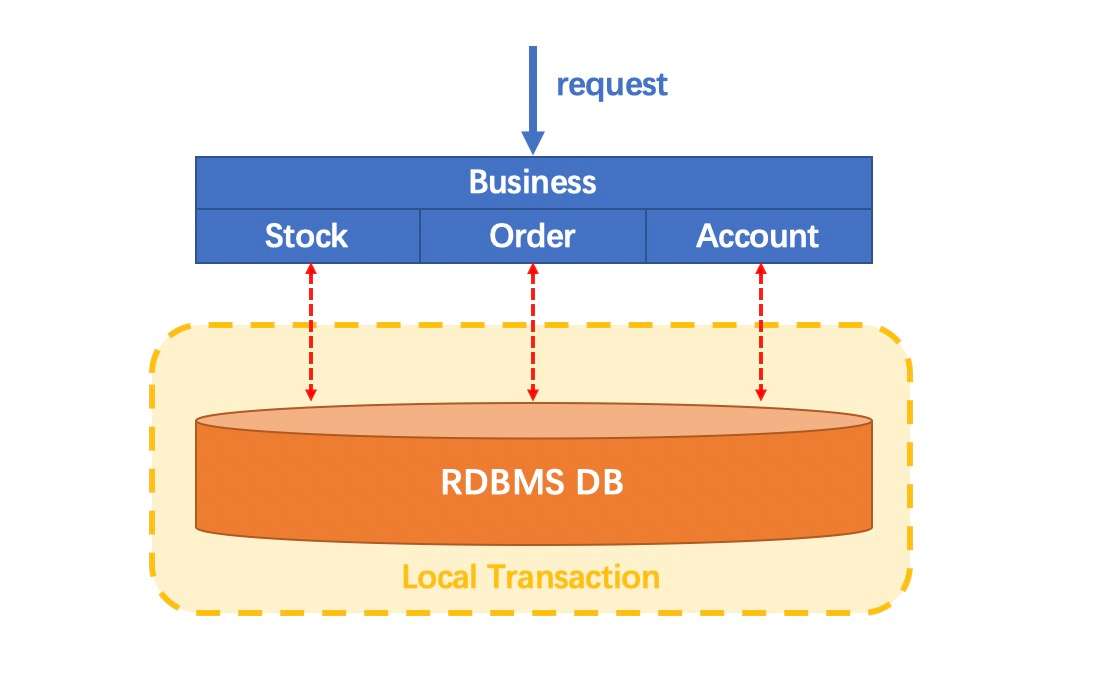
Things have changed in a microservices architecture. The 3 modules mentioned above are designed to be 3 services on top of 3 different data sources (Pattern: Database per service). Data consistency within every single service is naturally guaranteed by the local transaction.
But how about the whole business logic scope?

Seata-go is just a solution to the problem mentioned above.
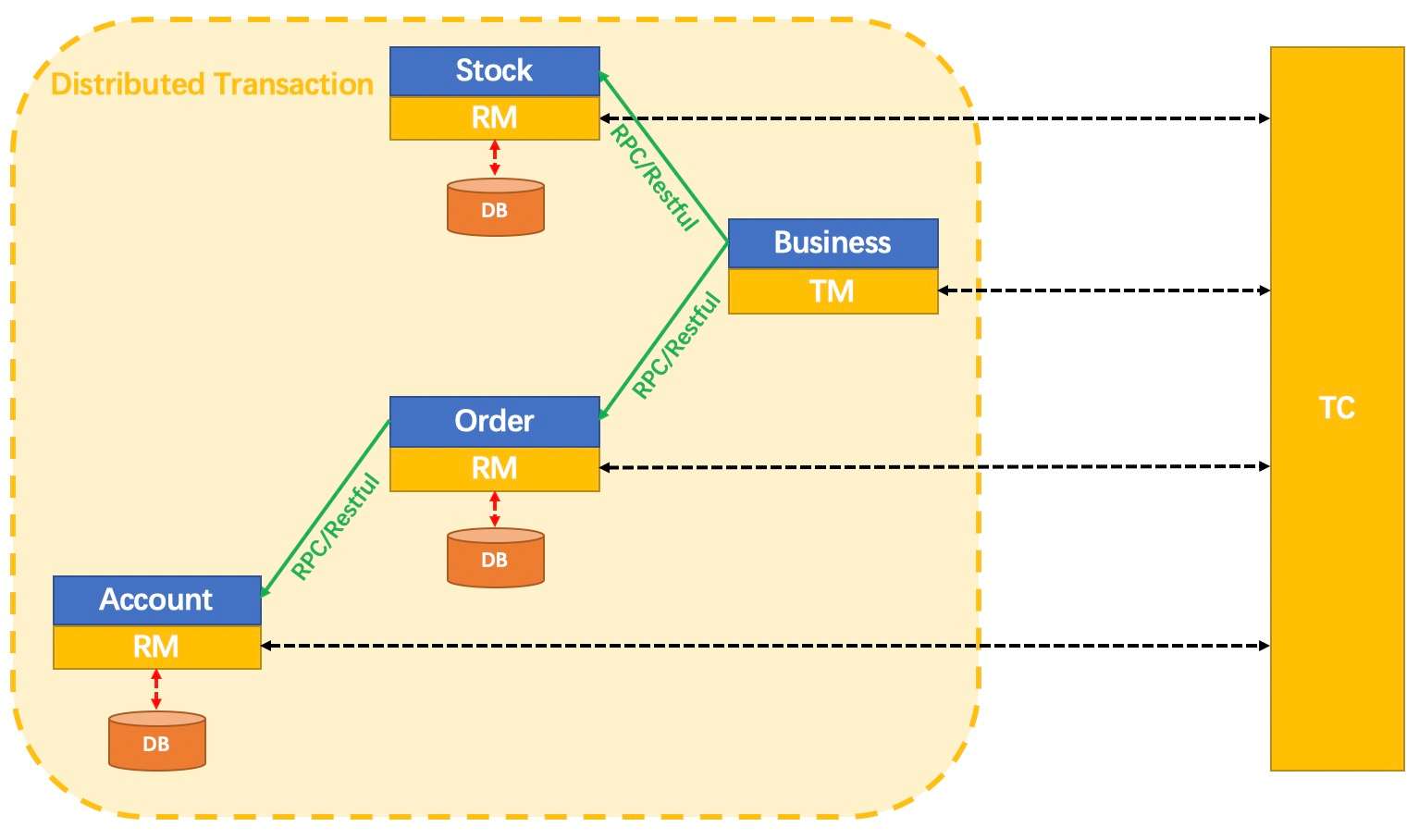
Firstly, how to define a Distributed Transaction?
We say, a Distributed Transaction is a Global Transaction which is made up with a batch of Branch Transaction, and normally Branch Transaction is just Local Transaction.
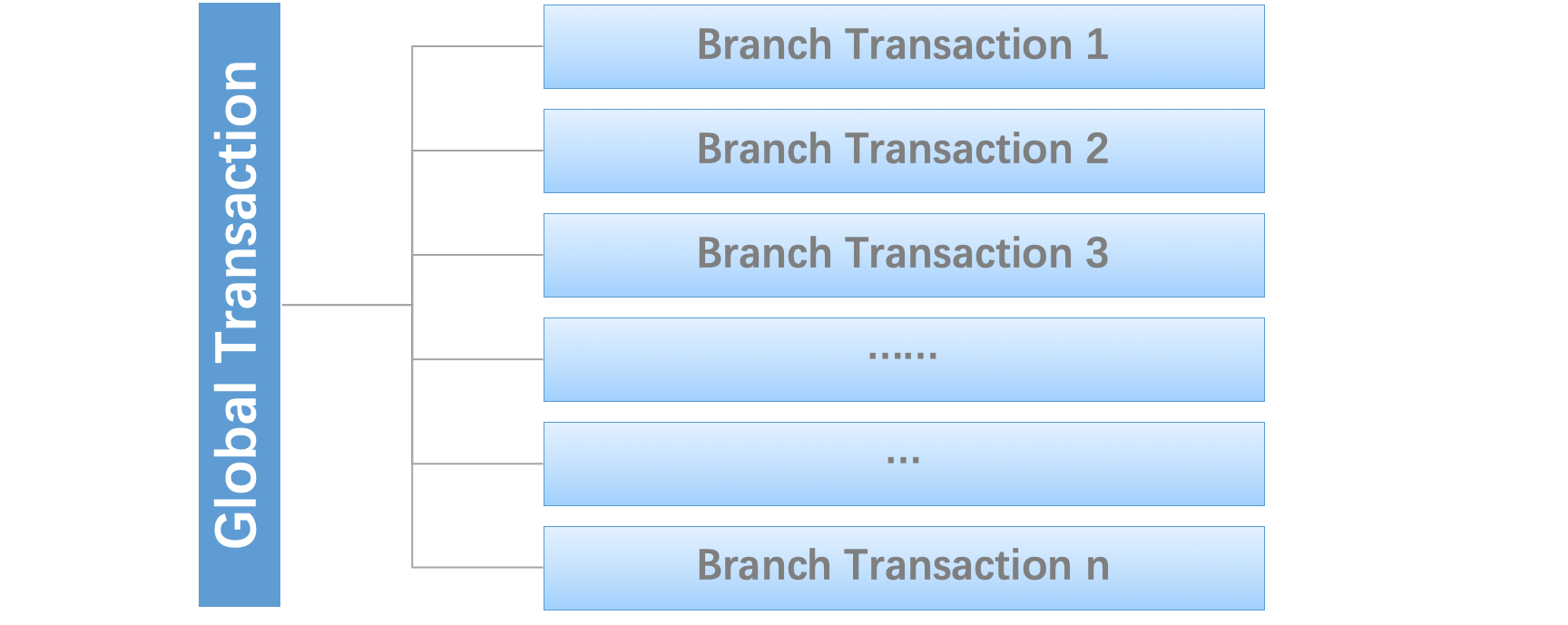
There are three roles in Seata-go:
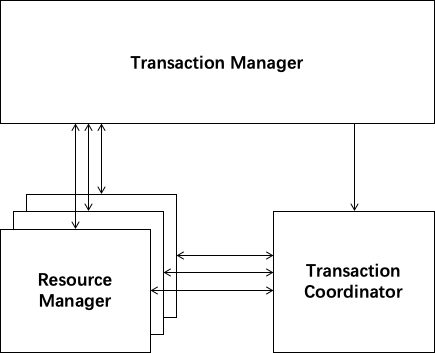
A typical lifecycle of Seata-go managed distributed transaction:
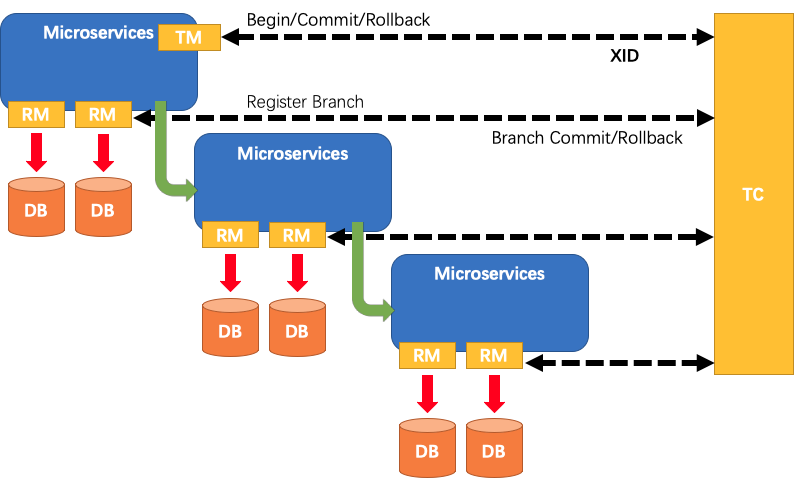
For more details about principle and design, please go to Seata wiki page.
XTS: Extended Transaction Service. Ant Financial middleware team developed the distributed transaction middleware since 2007, which is widely used in Ant Financial and solves the problems of data consistency across databases and services.
DTX: Distributed Transaction Extended. Since 2013, XTS has been published on the Ant Financial Cloud, with the name of DTX .
go get seata.apache.org/seata-go@v2.0.0
if you want to know how to use and integrate seata-go, please refer to apache/seata-go-samples
Visit Seata-Go's GitHub Releases page
Open: https://github.com/seata/seata-go/releases
The latest tag / release is the latest stable version.
You can view the full documentation from Seata Official Website: Seata Website page.
Please follow the template for reporting any issues.
Please do not use our public issue tracker but refer to our security policy
Seata-go is currently in the construction stage. Welcome colleagues in the industry to join the group and work with us to promote the construction of seata-go! If you want to contribute code to seata-go, you can refer to the code contribution Specification document to understand the specifications of the community, or you can join our community DingTalk group: 33069364 and communicate together!
| Dingtalk group | Wechat official account | QQ group | Wechat assistant |
|---|---|---|---|
This project exists thanks to all the people who contribute. [Contributors].
Seata-go is under the Apache 2.0 license. See the LICENSE file for details.